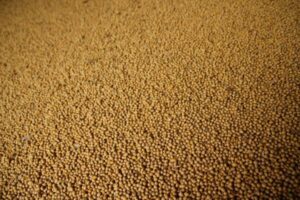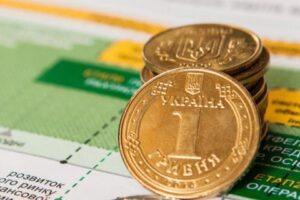
The mobile operator Vodafone Ukraine during the first quarter of 2021 launched a high-speed mobile Internet network in more than 550 settlements of Ukraine.
According to the company’s press service on Thursday, to date, Odesa, Dnipropetrovsk, Ternopil, Volyn, Sumy, Vinnytsia, Kherson, Poltava, Cherkasy and Lviv regions are among the top ten regions in terms of 4G network speed.
Among the regional centers, the “fastest” cities were ranked as follows: Mykolaiv, Chernihiv, Rivne, Vinnytsia, Kherson, Dnipro, Odesa, Lviv, Zaporizhia and Cherkasy.
Vodafone Ukraine is the second largest mobile network operator in Ukraine.

Boryspil International Airport (Kyiv) in January-June 2021 served 3.397 million passengers, which is 35% more compared to the same period in 2020 (2.519 million).
At the same time, according to the airport’s report, in June it served 938,674 passengers, which is almost 19.4 times more than in June 2020 (lockdown), of which 523,355 people were serviced on regular flights, 415,319 people – on non-scheduled flights.
In June, the airport received and dispatched 7,357 flights, which is six times more than in June 2020.
In addition, in the six months of 2021, Boryspil airport served 1.776 million passengers on regular flights (a 6% decrease) and 1.621 million on non-scheduled flights (an increase of 2.57 times).
In total, in the first half of 2021, the airport received and dispatched 29,264 flights, which is 33.7% more than in the same period in 2020.
At the same time, the number of transfer passengers for the six months of this year decreased by 72.3%, to 107,998 people (for the same period last year, this figure was 389,200 people).
The share of transfers in the total passenger traffic in January-June 2021 decreased from 15.5% to 3.2%.

Lyst-Ruchky LLC (Ruchky village, Poltava region), part of Astarta agro-industrial holding, exported the first batch of organic soybeans under a contract with the German processing company Agriprotein GmbH, the agricultural holding’s press service reported.
“A supply contract of organic soybeans was concluded with the German processing company Agriprotein GmbH. As per contract, the quality of delivered products has to be confirmed in two stages. The first samples of soybeans were selected and tested by the European laboratory Galab (Germany) prior to signing a contract. The organic origin of the product and its high quality was confirmed. The second stage of the inspection took place upon delivery and organic status of soybeans was reaffirmed,” the company said on its website.
“As reported, last year Astarta completed a three-year journey to the first harvest of organic grain and oilseeds crops in sync with the European trend of expanding organic farming methods. In the 2021 season, the total area of the company’s land bank under organic products is 1,800 ha with the following crops: soybeans, millet, mustard, sunflower, corn and winter wheat,” the report says.
“The company also plans to certify this crops according to Bio Suisse (Switzerland) and USDA NOP (USA) standards,” it said.
As reported, Lyst-Ruchky in July 2020 received a certificate of a manufacturer of organic products. To confirm this status, it took three years of work in a transitional period, the corresponding intermediate inspections and certifications.

Ukraine’s international reserves as of July 1, 2021, according to preliminary data, amounted to $28.358 billion (in equivalent), which is 2% more than at the beginning of May this year ($27.84 billion), according to the data of the National Bank of Ukraine (NBU).
“As of July 1, Ukraine’s international reserves, according to preliminary data, amounted to $28.358 billion (in equivalent). In June, they grew by 2% due to foreign exchange charges in favor of the government and NBU interventions, which compensated for the repayment of external and internal obligations of the state,” the report says.
As the National Bank notes, the dynamics of reserves in June was affected by operations on government debt management – the total volume of payments for servicing and repaying government and government-guaranteed debt in foreign currency amounted to $995.6 million (in equivalent).
It is specified that $848 million was spent on servicing and redeeming government domestic loan bonds, $80.1 million – on servicing eurobonds, and the rest – on fulfilling other government obligations in foreign currency.
At the same time, foreign exchange earnings in favor of the government amounted to $1.095 billion (in equivalent), including $726.3 million from the placement of government bonds.
The press service noted that in May, the NBU and the government sent $2.3 million to the IMF.
It is indicated that the dynamics of reserves was also influenced by the operations of the NBU in the interbank market. In particular, the NBU replenished its reserves by $682.8 million due to the fact that for most of the month the supply of foreign exchange on the interbank market prevailed over demand, including due to the growing interest of non-residents in government bonds and the activation of exporters.
In addition, on some days, the regulator smoothed out excessive fluctuations of the hryvnia by selling foreign currency, selling $99.5 million per month.
According to the report, the dynamics of the indicator in June was also influenced by the revaluation of financial instruments – last month their value decreased by $180.8 million in equivalent, according to the National Bank.
As the regulator noted, as of July 1, 2021, the volume of international reserves covers 4.3 months of future imports. It is clarified that this is enough to fulfill the obligations of Ukraine and the current operations of the government and the NBU.
In addition, the NBU clarified that Ukraine’s net international reserves in June increased by $623 million, or 3.6%, to $17.977 billion.

Smart Energy in January-June 2021 reduced gas production by 0.2% (by 300,000 cubic meters) compared to the same period last year, to 199 million cubic meters, the press service of the group said.
In addition, the production of gas condensate by the companies of the group increased by 1.2%, to 17,800 tonnes, liquefied propane-butane – by 12.3%, to 5,100 tonnes.
According to the press service, despite the natural depletion of reservoir energy in the productive horizons of the fields developed by Smart Energy, the group continues to maintain production volumes at a stable level.
“We are keeping our production of natural gas stable, primarily due to our new wells in Poltava region. Taking into account this fact and positive dynamics of price for natural gas, we are planning to spud at least two more new wells in H2 this year,” Serhiy Hlazunov, the CEO of Smart Energy Group, said.
“In February the company spudded one more new development well, No. 29, at Svyrydivske field as well. The target depth is 5,450 meters. Currently the well has reached a depth of approximately 5,250 meters. Drilling operations are ahead of schedule. Subject to successful testing, production hook-up is now expected by the end of Q3, 2021,” the report says.
“Arkona Gas-Energy is getting ready to development of Svystunkivsko-Chervonolutske field (Poltava region). The company is completing supplementary prospecting and exploration as well as design works. During next two months it is spudding well No. 4. Start of 3D seismic is planned for Q4 this year as well,” the company said on its website.
“Preparations for upgrade works to the gas processing plant are in progress. The upgrade includes equipment modernization and increase to the liquids tank storage capacity. The works are scheduled to commence in Q4, 2021,” it said.

Ukraine will receive a part of the vaccines from the United States through the COVAX program, which will be transferred as part of the U.S. plans to purchase and transport 500 million doses of Pfizer and BioNTech vaccines, the U.S. Embassy in Ukraine press service said. “About a month ago President [Joe] Biden announced that he will purchase another 500 million additional doses of Pfizer BioNTech COVID-19 vaccines to contribute to Covax, which is the facility that is sharing these vaccines around the world, including with Ukraine,” the embassy said in the statement.
As noted, the USAID agency located in Ukraine will set up distribution networks and “cold chain” networks that allow the vaccine to be fully ready to go.
“The United States is the largest global contributor to the Covax Facility. We have given over $4 billion to that facility to help distribute vaccines around the world,” the embassy’s press office said.
At the same time, the U.S. government plans to continue to cooperate with Ukraine and other countries to reduce the level of coronavirus (COVID-19) disease in the world.